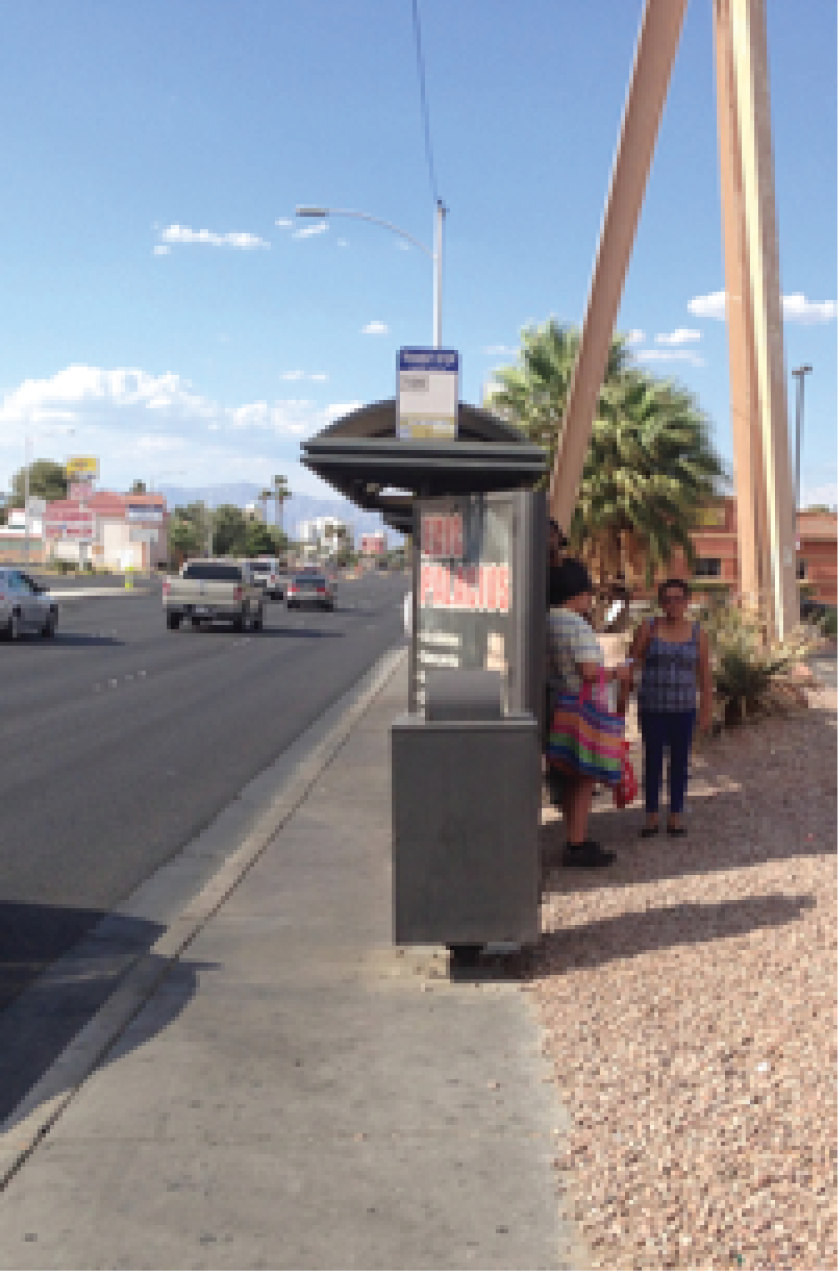
Like most southwestern cities Las Vegas is dominated by the automobile. Although I am far from being in the top 1%, I believe I am the only Las Vegas resident in my tax bracket that does not own a car. I ride the bus. I do this for several reasons, but the main reason is that I hate to drive. I would rather have someone else take the wheel while I read, stare out the window or answer a few emails on my phone.
There are definitely other benefits to using the bus, like walking more and not having to deal with parking, maintaining a vehicle, insurance and car payments. I even earn bonus points in some people’s minds for saving the planet.
One major benefit of bus riding that caught me off guard is that it keeps things real. A one-way bus ticket costs $2, so no one is taking the bus on a joy ride. My fellow bus riders are hardworking people struggling to make it to a job, grocery shop or get their sick kids to the doctor’s office. Many of the riders are in wheelchairs or have a disability that requires the costly lifts and other technologies available on the bus. I ride the bus because I choose to, but many others don’t have a choice — they can’t afford their own vehicle.
Several months after selling my car and taking the bus, I have begun to notice the carelessness and indifference my companions and I endure. It begins with the quantity and quality of public space allocated for people that don’t own cars.
If you are lucky you get a thin strip of concrete adjacent to a lane of hurried traffic. That thin leftover strip of land needs to accommodate all the other public amenities like light poles, powerlines, trash cans, bicycle traffic and yes — the bus stop
This off-the-shelf bus stop, pictured here, might conform to all the regulations, but it doesn’t even provide the promised protection from the blistering desert sun. Riders huddle behind the structure on uneven terrain next to a parking lot as they wait for the bus. The lack of dignity afforded people that don’t own a car is staggering. It is not the fault of the bus system or the city planners alone. The built environment has historically been the playground of the wealthy and powerful. These conditions are the result of a specific set of perspectives and priorities that emerge when people overlook and disregard the needs of those less fortunate.
